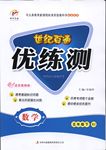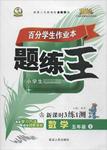题目内容
5.When a leafy plant is under attack,it doesn't sit quietly.Back in 1983,two scientists,Jack Schultz and Ian Baldwin,reported that young maple trees getting bitten by insects send out a particular smell that neighboring plants can get.These chemicals come from the injured parts of the plant and seem to be an alarm.What the plants pump through the air is a mixture of chemicals known as volatile organic compounds,VOCs for short.Scientists have found that all kinds of plants give out VOCs when being attacked.It's a plant's way of crying out.But is anyone listening?Apparently.Because we can watch the neighbors react.
Some plants pump out smelly chemicals to keep insects away.But others do double duty.They pump out perfumes designed to attract different insects who are natural enemies to the attackers.Once they arrive,the tables are turned.The attacker who was lunching now becomes lunch.
In study after study,it appears that these chemical conversations help the neighbors.The damage is usually more serious on the first plant,but the neighbors,relatively speaking,stay safer because they heard the alarm and knew what to do.
Does this mean that plants talk to each other?Scientists don't know.Maybe the first plant just made a cry of pain or was sending a message to its own branches,and so,in effect,was talking to itself.Perhaps the neighbors just happened to"overhear"the cry.So information was exchanged,but it wasn't a true,intentional back and forth.
Charles Darwin,over 150 years ago,imagined a world far busier,noisier and more intimate(亲密的) than the world we can see and hear.Our senses are weak.There's a whole lot going on.
32.What does a plant do when it is under attack?D
| A.It makes noises. | B.It gets help from other plants. |
| C.It stands quietly. | D.It sends out certain chemicals. |
A.The attackers get attacked.
B.The insects gather under the table.
C.The plants get ready to fight back.
D.The perfumes attract natural enemies.
34.Scientists find from their studies that plants canB.
A.predict natural disasters
B.protect themselves against insects
C.talk to one another intentionally
D.help their neighbors when necessary
35.What can we infer from the last paragraph?C
A.The world is changing faster than ever.
B.People have stronger senses than before.
C.The world is more complex than it seems.
D.People in Darwin's time were more imaginative.
分析 文章首先提出当多叶植物受到攻击时不会坐以待毙这一观点.并围绕这一论点展开叙述.研究发现当植物受到攻击时,会发出VOC2以此来保护自己或者与周围的植物通过化学物质进行交流.
解答 32.D 细节理解题.根据第一段句子reported that young maple trees getting bitten by insects send out a particular smell that neighboring plants can get报道称,被昆虫叮咬的年轻枫树发出了附近植物能闻到的特殊气味.These chemicals come from the injured parts of the plant and seem to be an alarm可知当受到伤害时会分泌一种特殊的化学物质,所以答案选D.
33.A 词义猜测题.根据句子Once they arrive,the tables are turned.The attacker who was lunching now becomes lunch一旦他们到达这里,这些攻击者就会成为植物的午餐,可以看出攻击者就会成为被攻击者的意思,所以答案选A.
34.B 细节理解题.根据倒数第二段 In study after study,it appears that these chemical conversations help the neighbors.The damage is usually more serious on the first plant,but the neighbors,relatively speaking,stay safer because they heard the alarm and knew what to do.可知植物在必要的时候会通过分泌化学物质,通知周围的植物保持警惕.所以答案选B.
35.C 推理判断题.根据文章最后一句imagined a world far busier,noisier and more intimate(亲密的) than the world we can see and hear.Our senses are weak.There's a whole lot going on.可知这个世界远比我们看到的听到的更热闹,更亲密.我们的认知能力有限,有很多事仍在继续发生,远比我们想象的更复杂.所以答案选C.
点评 本文是一篇提出论点,展开论述的文章.先找出文章观点,然后根据文章的叙述找出对于观点的论证.要求考生根据文章所述事件的逻辑关系,对未说明的趋势或结局作出合理的推断;或根据作者所阐述的观点理论,对文章未涉及的现象、事例给以解释.考生首先要仔细阅读短文,完整了解信息,准确把握作者观点.

 世纪百通主体课堂小学课时同步达标系列答案
世纪百通主体课堂小学课时同步达标系列答案 世纪百通优练测系列答案
世纪百通优练测系列答案 百分学生作业本题练王系列答案
百分学生作业本题练王系列答案注意:100词左右.
| 利 | 弊 |
| 方便购物 | 花销大、住房昂贵 |
| 交通便利 | 空气污浊 |
| 休闲、娱乐形式多样 | 公交车拥挤 |
---Well,I do enjoy it.However,I dislike ______when the actors'expressions are so fake and unnatural.( )
| A. | that | B. | those | C. | them | D. | it |
A.To cancel a flight.B.To make an apology.C.To put off a meeting.
| A. | ranging | B. | range | C. | to range | D. | ranged |